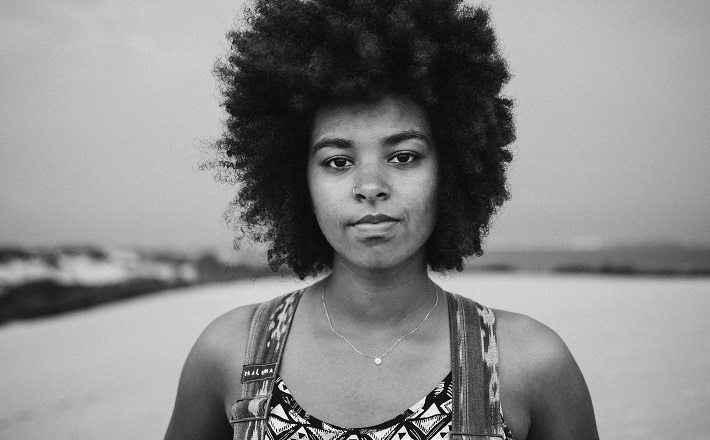Commentary on Jeremiah 33:14-16
God’s word can find us anywhere — even in prison, as Jeremiah discovered: “The word of the Lord came to Jeremiah a second time, while he was still confined in the court of the guard” (Jeremiah 33:1).
Prison is bad enough, but it gets even worse for Jeremiah, who is forced to serve his prison sentence in the middle of a foreign invasion. In addition to these horrifying external realties, Jeremiah also carries the burden of his message, that Judah’s situation is going to get worse before it gets better (Jeremiah 33:5-9).
The faithlessness of Judah’s leadership and its disregard for its societal responsibilities invited death and destruction into the city’s once mighty walls. Jeremiah’s description is potent and terrifying:
The Chaldeans are coming in to fight and to fill them with the dead bodies of those whom I shall strike down in my anger and my wrath, for I have hidden my face from this city because of all their wickedness … In this place of which you say, “It is a waste without human beings or animals,” in the towns of Judah and the streets of Jerusalem that are desolate, without inhabitants, human or animal (Jeremiah 33:5, 10).
Judah’s faithlessness courts a terrifying encounter with the Hidden God, whose anger undoes creation, human and non-human alike. The city devolves into a state of chaos, desolation, and lifelessness. The once bustling city of Jerusalem has been returned to a kind of pre-creational tohu wavohu (Genesis 1:2). In the words of Psalm 104, “When you hide your face, they are dismayed; when you take away their breath, they die and return to their dust” (Psalm 104:29). To see the shining face of God is blessing and life (Numbers 6:24-26).
But the story doesn’t end here. Even while Yhwh roars in anger outside Jerusalem’s walls, he simultaneously offers the promise of a new future, from within the walls of Jerusalem in the person and words of Jeremiah:
I am going to bring it recovery and healing; I will heal them and reveal to them abundance of prosperity and security. I will restore the fortunes of Judah and the fortunes of Israel, and rebuild them as they were at first. I will cleanse them from all the guilt of their sin against me, and I will forgive all the guilt of their sin and rebellion against me. And this city shall be to me a name of joy, a praise and a glory before all the nations of the earth who shall hear of all the good that I do for them; they shall fear and tremble because of all the good and all the prosperity I provide for it … flocks shall again pass under the hands of the one who counts them, says the Lord … The days are surely coming, says the Lord, when I will fulfill the promise I made to the house of Israel and the house of Judah. In those days and at that time I will cause a righteous Branch to spring up for David; and he shall execute justice and righteousness in the land. In those days Judah will be saved and Jerusalem will live in safety. And this is the name by which it will be called: “The Lord is our righteousness.” For thus says the Lord: David shall never lack a man to sit on the throne of the house of Israel, and the levitical priests shall never lack a man in my presence to off (Jeremiah 33:7-9, 15-18).
Yhwh’s double-edged words works simultaneously, both killing and making alive.
God’s forgiveness creates a new future for Jerusalem. This new future will be one in which hidden promises are revealed, in which God’s shadowed face will come gloriously into view, and in which justice and righteousness will prevail in the land.
The new city of Jerusalem, moreover, will glimmer with the sheen of borrowed righteousness, as demonstrated by her new name, Yhwh tzidqeynu, “Yhwh is our righteousness” (Jeremiah 33:16).
Yhwh’s “righteousness” is manifest in two of Judah’s most important institutions, the priesthood and the throne, both of which took a Babylonian-style beating at the end of the 6th century. Once the targets of Jeremiah’s rage (Jeremiah 2:8, 26; 5:31; 6:13; 13:13), these institutions have also been healed and transformed into promise-bearing loci of political power.
Not surprisingly, special attention is given to the “righteous Branch,” a descendent of David who will sit on his predecessor’s throne. Yhwh’s promise to David — memorialized most fully in 2 Samuel 7 and 1 Chronicles 17 — is specifically named. Yhwh’s commitment to this promise is as firm and predictable as cosmic law: “If any of you could break my covenant with the day and my covenant with the night, so that day and night would not come at their appointed time, only then could my covenant with my servant David be broken, so that he would not have a son to reign on his throne, and my covenant with my ministers the Levites.” (Jeremiah 33:20-21).
In this remarkable text, the unfaithfulness of Judah’s leaders opens Jerusalem’s doors to the forces of death, destruction, and chaos. In a terrifying move, Yhwh hides his face and all that is good dies on the vine. But Yhwh’s hiddenness does not mean Yhwh’s silence. The living word preaches on in the person of Jeremiah who foresees the dawn of a “new day,” inaugurated by Yhwh’s decision to heal and forgive.


December 2, 2018